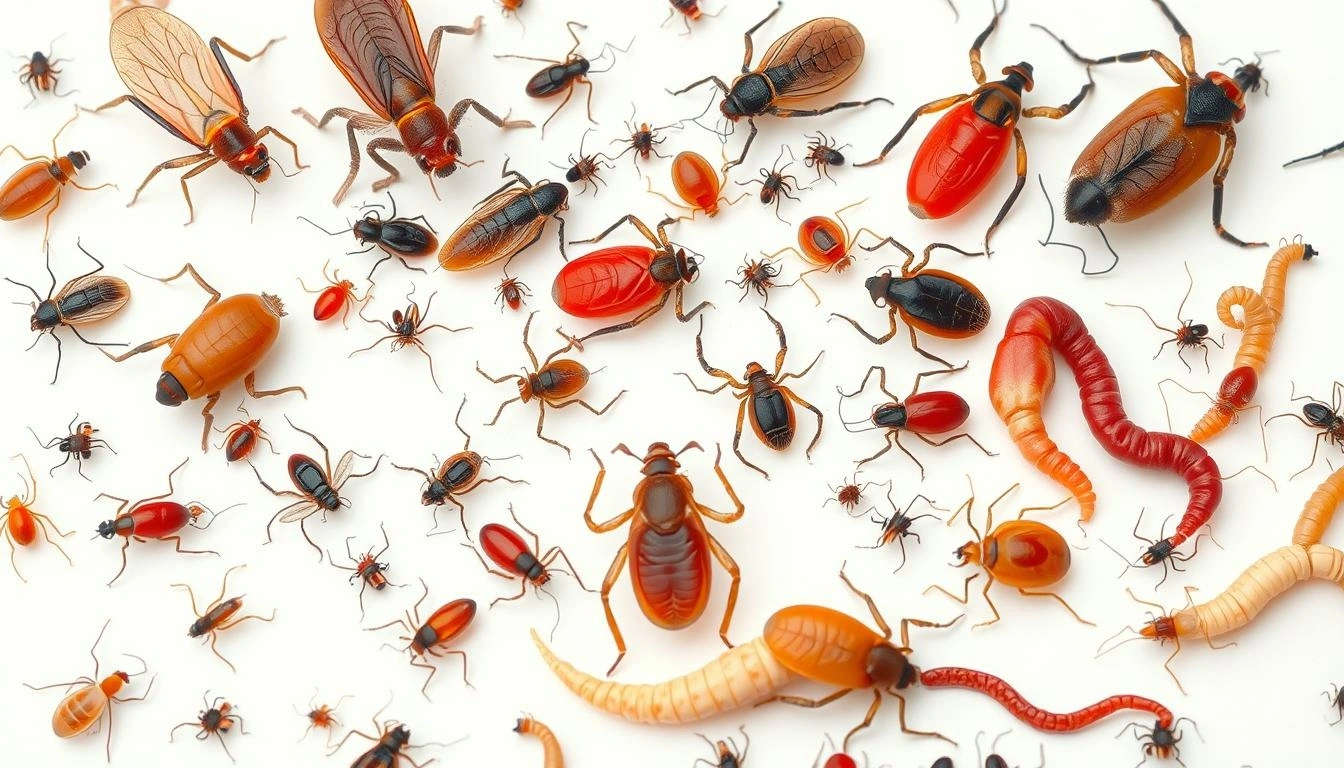As a parent, keeping your kids safe is your main goal. Pet parasites can be a big risk to their health. It’s key to know the dangers they pose. These parasites can spread from pets to kids through contact with contaminated things.

To protect your kids, it’s important to prevent parasites from spreading. This guide will give you the info you need. It’s all about keeping your family safe and healthy.
Key Takeaways
- Pet parasites can pose a significant risk to child safety
- Proper pet care is essential to preventing parasite transmission
- Children can be exposed to pet parasites through contact with contaminated feces, fur, or other bodily fluids
- Regular veterinary check-ups and deworming schedules can help prevent parasite transmission
- Establishing good hygiene practices and maintaining a clean pet environment can help keep your kids safe
Understanding the Hidden Risks of Pet Parasites
Pet parasites are a big threat to child health. Parents need to know the risks. There are many parasite types that can harm pets. These include internal and external parasites.
Internal parasites like hookworms and roundworms live in a pet’s stomach. External parasites, such as fleas and ticks, live on a pet’s skin and fur.
Children are more likely to get parasite infections. This is because their immune systems are still growing. They also tend to explore their surroundings more.
It’s important for parents to protect their children’s child health and pet health. Signs of parasite infections in kids include stomach problems, skin rashes, and breathing issues.
- Hookworms
- Roundworms
- Fleas
- Ticks
Knowing about these parasite types helps parents prevent infections. This way, they can keep their children safe and healthy. It also ensures a safe home for everyone, including pets.
The Most Common Ways Children Get Exposed to Pet Parasites
Children can get pet parasites in many ways. This includes playing with dirty feces, touching sick pets, or eating contaminated food or water. It’s key for parents to watch their kids when they’re around pets. They should also teach them to wash their hands after touching pets or their waste.
To keep kids safe, parents need to know how they can get parasites from pets. These ways include:
- Playing with contaminated feces or soil
- Touching infected pets or their waste
- Ingesting contaminated food or water
To stop parasites from spreading, parents must take steps. This includes regular vet visits, good hygiene, and a clean pet area. These actions help keep kids safe and make a happy home.
Parents should teach their kids about safe pet interaction. This way, families can enjoy pets while staying safe from parasites.
Essential Steps for Preventing Pet-to-Child Parasite Transmission
To stop parasites from pets to kids, the whole family needs to work together. As a parent, it’s key to act early to keep your child safe and healthy. Good pet care is vital to lower the chance of parasites spreading. By setting safe pet rules and teaching good hygiene, you can greatly cut down the risk.
Keeping pet areas clean is a big part of parasite prevention. This means cleaning pet spots, bowls, and toys often. This helps keep your child’s space safe and healthy. It’s also important to teach your child to wash their hands after touching pets or their waste.
- Establish a regular cleaning schedule for pet areas and toys
- Encourage good hygiene practices, such as washing hands after handling pets or their waste
- Provide a safe and healthy environment for your pet, including regular veterinary check-ups and a balanced diet
By taking these steps and focusing on pet care and parasite prevention, you can create a safe space for your child and pet. A clean pet area is essential for your child’s health and happiness.
A Parent’s Guide to Keeping Kids Safe from Pet-Borne Parasites
As a parent, protecting your kids from pet parasites is key. Regular vet visits, deworming, and flea and tick control are musts. These steps help stop parasites from pets to kids. Keeping your home clean and healthy also lowers the risk of parasites spreading.
Good pet care stops parasites from spreading. Clean your pet’s bowls, wash your hands after touching them, and keep their area clean. These actions help keep your kids safe from pet parasites and make your home a happy place.

- Watch when your kids and pets are together to avoid risks.
- Teach your kids to wash their hands after playing with pets.
- Make sure your pet’s shots and preventatives are current to stop parasites.
By focusing on pet care and stopping pet parasites from spreading, you keep your kids safe. This makes your home a healthy and joyful space for everyone.
Proper Pet Care: Your First Line of Defense
As a responsible pet owner, keeping your pet healthy is key to stopping parasites. Regular veterinary care can spot health problems early, like parasite infections. This lets you take steps to prevent them. By focusing on your pet’s health, you lower the chance of parasites spreading and keep your family safe.
Stopping parasites needs a few steps. This includes regular vet visits, deworming, and keeping fleas and ticks away. Adding these to your pet care routine helps keep your pet healthy and stops parasites from spreading.
It’s important to work closely with your vet for the best care. They can give you advice on pet health and help make a plan to stop parasites. By caring for your pet’s health and following your vet’s advice, you make a safe space for everyone in your family.
- Regular veterinary check-ups
- Deworming schedules
- Flea and tick prevention
By taking these easy steps, you protect your pet’s health and stop parasites. Remember, taking care of your pet is your first defense against parasites. By focusing on your pet’s health, you ensure a safe and healthy home for your family.
Teaching Children Safe Pet Interaction
As a parent, it’s key to teach your kids how to safely interact with pets. Pet interaction is vital in pet care. By teaching your kids how to handle pets gently, you lower the risk of parasites.
Teach your kids to pet animals gently and avoid touching their faces or mouths after. It’s also important to not touch contaminated feces. These are crucial steps in safe pet handling.
Setting rules for pet interaction is essential for child safety. Supervise when young kids are with pets. This helps build a strong, safe bond between kids and pets.
Activities like grooming and feeding pets can also strengthen this bond. These actions show kids the importance of caring for pets.

- Wash your hands after handling pets or their waste
- Avoid touching your face or mouth after handling pets
- Supervise interactions between children and pets
- Establish rules for gentle pet handling
By following these tips, you can create a safe space for both kids and pets. Remember, pet care demands attention to detail and safety. Prioritizing child safety and pet interaction prevents parasites and fosters a good relationship between kids and pets.
When to Seek Medical Attention
As a parent, knowing the parasite symptoms is key. If you think your child has been exposed to pet parasites, get help right away. Look out for digestive issues, skin rashes, and breathing problems.
When you go to the doctor, tell them everything. Share your child’s symptoms, when they started, and how long they’ve lasted. Also, mention any contact with pet parasites. This helps the doctor figure out the best treatment for your child.
- The type of pet your child was exposed to
- The length of time your child was exposed
- Any symptoms your child is experiencing
Getting medical help quickly and sharing all the details is crucial. It ensures your child gets the right treatment and care. This helps avoid long-term health issues. Always choose caution when it comes to your child’s health. Gettingmedical attention is the best way to keep them safe.
Creating a Parasite-Free Home Environment
As a responsible pet owner, keeping your home free from parasites is key. Regular home cleaning helps a lot. Make sure to disinfect pet areas, bowls, and toys.
Good pet care means more than just a clean home. Keep pet supplies, like food and toys, safe and clean. These simple steps can greatly lower the risk of parasites in your home.
- Regularly clean and disinfect pet areas and supplies
- Store pet food and toys safely
- Wash your hands after touching pets or their supplies
By following these tips, you can protect your family from pet parasites. This way, you keep your home clean and healthy.
Conclusion: Balancing Pet Love with Family Safety
It’s natural to want your kids to have a pet. But, keeping your family safe is just as important. By following the steps in this guide, you can balance your pet’s needs with your kids’ health.
Regular vet visits, deworming, and flea prevention are key to a parasite-free home environment. Teaching your kids how to handle pets safely and practice good hygiene is also vital for family safety.
With some knowledge and care, you can make sure your pet love and family health go hand in hand. By working together, you’ll create a safe and happy home for your kids and their pets.
FAQ
What are the most common types of pet parasites found in American homes?
In American homes, common pet parasites include internal ones like hookworms and roundworms. External parasites like fleas and ticks are also common.
How do pet parasites affect children differently than adults?
Children are more at risk for parasite infections because their immune systems are still growing. They often touch contaminated things, like feces or fur, which increases their risk.
What are the signs that a child may have been exposed to pet parasites?
Signs of parasite exposure in kids include tummy troubles, skin rashes, and breathing issues.
What are the most common ways children get exposed to pet parasites?
Kids can get parasites from playing with dirty feces, touching sick pets, or eating or drinking contaminated things.
How can parents create a safe pet handling environment for their children?
Parents should teach kids to wash their hands after touching pets or their waste. It’s also important to teach the value of good hygiene.
How can parents maintain a clean pet environment to reduce the risk of parasite transmission?
Keeping pet areas, bowls, and toys clean and disinfected can help lower the risk of parasites spreading.
What are the essential steps for preventing pet-to-child parasite transmission?
To stop parasites from spreading, parents should teach kids how to handle pets safely, practice good hygiene, and keep pet areas clean.
When should parents seek medical attention if they suspect their child has been exposed to pet parasites?
If you think your child has been exposed to parasites, get medical help right away. Look for signs like tummy problems, skin rashes, or breathing issues. Be ready to tell the doctor about your child’s symptoms and how they might have been exposed.
What cleaning tips and best practices can parents implement to create a parasite-free home environment?
To keep your home free of parasites, clean and disinfect pet areas, bowls, and toys regularly. Also, make sure pet supplies are kept safe and away from contamination.
